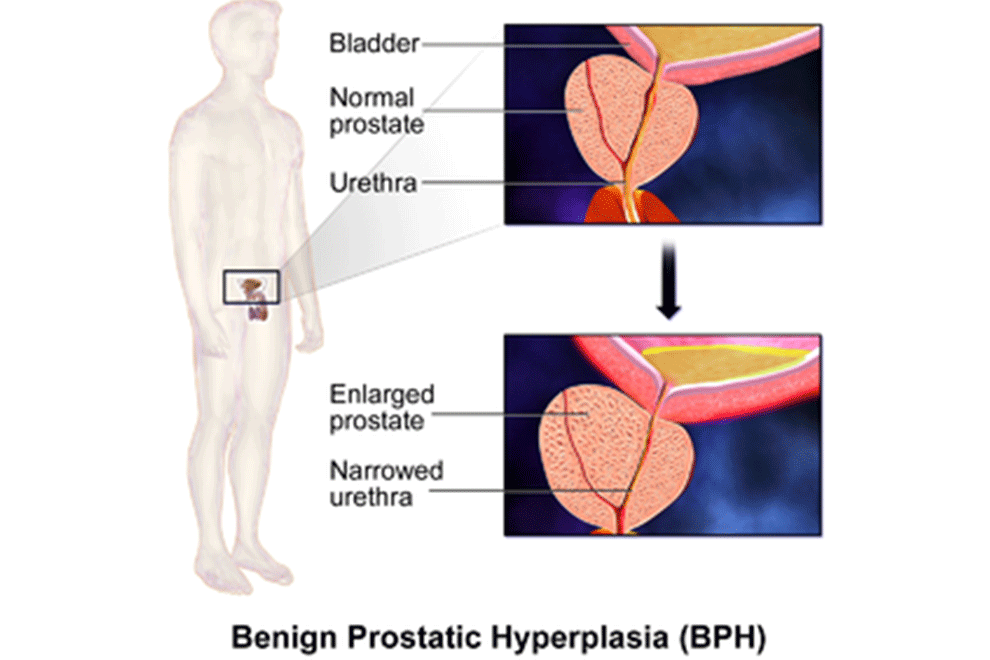
Benign Prostate
The prostate is a walnut-sized gland that forms a part of the male reproductive system. The prostate is placed immediately below the urinary bladder and it surrounds the urethra, the canal through which urine passes out of the body. Prostate enlargement can be benign i.e. non-cancerous or cancerous. More than 75% of men above 60 complain of some symptom related to benign prostatic enlargement.Symptoms arise due to obstruction of the urethra due to the enlargement.
There is gradual loss of bladder function which results in incomplete emptying of the bladder. Frequent urination, especially at night, is the commonest complaint of people with enlarged prostate.
They also complain of poor retention or difficulty to control urine, urgency, leaking or dribbling of urine. The urine stream becomes interrupted or weak. Some people also complain of painful urination. This is due to local urinary bladder infection which is the result of severe inflammation of the prostate. Rectal examination and ultra sonography are common investigations to detect Prostate enlargement.
To rule out cancer, Prostate Specific Antigen (PSA) levels are checked. Elevated PSA levels indicate cancer. Prostate biopsy can confirm its diagnosis. Homoeopathy is strongly recommended for benign enlargement since it immediately reduces the inflammation and swelling. Recovery is excllent and surgical interventions can be avoided.
The patients are relieved of their complaints within 2 to 6 weeks of medication, since the gland will not grow any further and the inflammation reduces. However, prolonged treatment for atleast a year or more is extremely essential for complete and permanent cure.
To schedule the First Consultation: Telephonic/ Skype.
To order medication for Prostate Enlargement: EMAIL US/ CALL US
